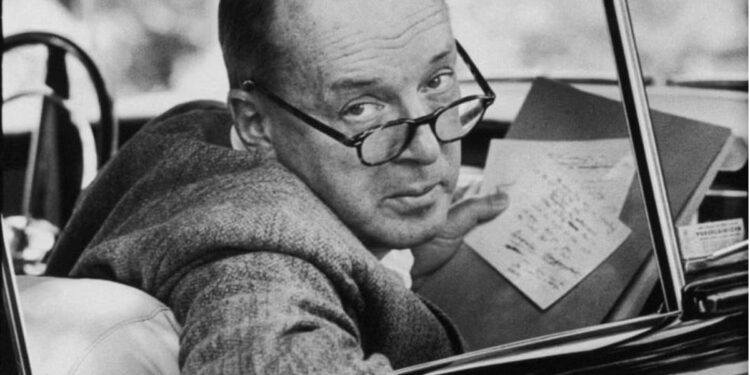Vladimir Nabokov, a prolific and enigmatic figure in 20th-century literature, continues to captivate readers with his unique blend of linguistic artistry and intricate storytelling. Born in Russia in 1899, Nabokov’s life was marked by geographical shifts, from his early years in a prominent Russian family to his later emigration to the United States. His experiences lent a distinct international perspective to his works, which spanned novels, short stories, poems, and essays.
Nabokov’s most famous work, “Lolita,” stands as a testament to his ability to navigate controversial themes with literary finesse. The novel’s intricate narrative, narrated by a morally complex protagonist, explores the mind of Humbert Humbert, a professor infatuated with his adolescent stepdaughter. Nabokov’s prose dances between poetic lyricism and psychological examination, challenging readers to grapple with uncomfortable subjects while appreciating the elegance of his writing.
Beyond “Lolita,” Nabokov’s literary contributions remain formidable. His fascination with wordplay, intricate puzzles, and layered narratives is evident in works like “Pale Fire,” a novel presented in the form of a poem and commentary, allowing readers to delve into the blurred lines between authorship and interpretation. Nabokov’s writing often blurs reality and imagination, inviting readers into labyrinths of thought that demand their active engagement.
His multilingualism, having mastered Russian, English, and French, played a pivotal role in shaping his distinct literary voice. Nabokov’s novels are marked by an exquisite attention to language, enabling him to play with puns, double entendres, and intricate word choices. This linguistic virtuosity has ensured his enduring influence on writers and scholars alike.
Vladimir Nabokov’s legacy extends beyond his novels. His fervent belief in the potential of literature as art led him to experiment with narrative forms, pushing the boundaries of conventional storytelling. Nabokov’s works continue to inspire discussions on the intricate interplay between language, narrative structure, and the human experience.
In a literary landscape that celebrates innovation and challenges societal norms, Nabokov’s legacy remains as a beacon of creativity. His ability to evoke emotions, provoke thoughts, and engage readers in intellectual exploration solidifies his place as a master of literary enchantment, reminding us of the transformative power of words.
newshub



Recent Comments